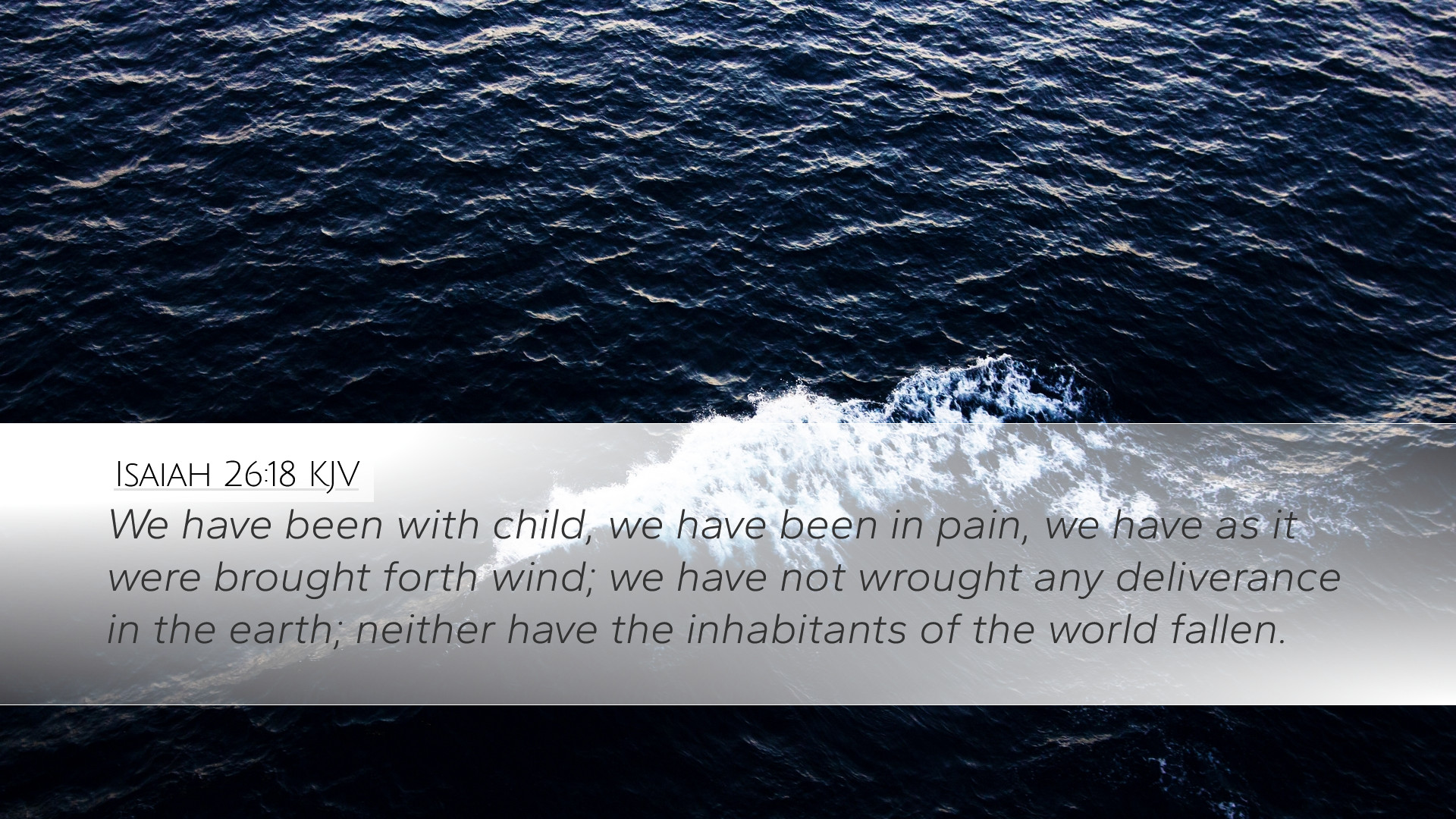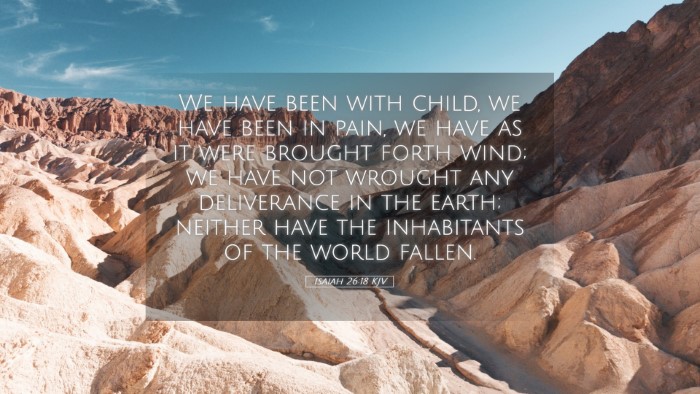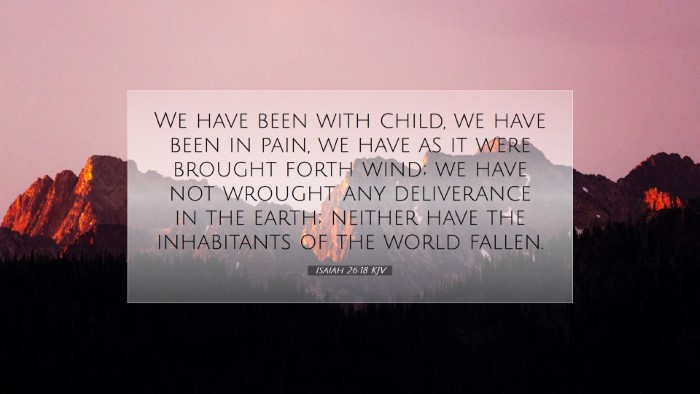Commentary on Isaiah 26:18
Verse Text: "We have been with child, we have been in pain, we have as it were brought forth wind; we have not wrought any deliverance in the earth; neither have the inhabitants of the world fallen."
Introduction
The passage from Isaiah 26:18 presents profound contemplations on human experiences of suffering and futility. It serves as a lament for the efforts of God's people which, despite their hard work, have led to disappointing outcomes. Esteemed commentators such as Matthew Henry, Albert Barnes, and Adam Clarke offer pivotal insights into this verse, exploring its theological significance and practical applications for believers.
Contextual Background
Isaiah prophesied during a tumultuous period in Israel’s history, marked by moral decay and impending judgment. This chapter stands as a song, likely sung during a time of distress, offering hope in the midst of despair. The verse captures a poignant awareness of the anguish and disappointment felt by the faithful.
Summary of Commentary Insights
-
Matthew Henry's Perspective
Henry elucidates that the metaphor of childbirth is significant; it embodies not only hardship but also the expectancy of fruitful outcomes. However, in this instance, the expectation is subverted as the effort yields "wind," signifying emptiness and futility. He emphasizes that this reflects a broader spiritual truth: human efforts, unaided by divine intervention, ultimately amount to naught.
He further posits that the suffering in childbirth serves as a metaphor for spiritual longing and the anticipation of redemption, which, in this context, seems unfulfilled. The plea for deliverance reveals a deep longing for salvation, underscoring humanity's inability to achieve it on their own.
-
Albert Barnes' Insights
Barnes provides a detailed exegesis of the verse, noting its expression of despair and frustration among the faithful. The lamentation stems from painful labor without the resultant blessing of deliverance, suggesting the disappointment faced by those striving for righteousness in a sinful world.
He articulates that "bringing forth wind" symbolizes the fruitlessness of their efforts, suggesting that human labor, detached from God’s will, cannot produce the desired results. Barnes emphasizes the inevitability of human limitations and the necessity of dependency on divine power for true deliverance.
-
Adam Clarke's Exegesis
Clarke's commentary highlights the metaphor of childbirth as representative of intense struggle leading to seemingly barren results. He interprets "bringing forth wind" as indicative of empty promises and futile endeavors, resonating with the Israeli experience during their exilic period.
Clarke also discusses the collective nature of this lament, suggesting that it reflects the shared anguish of a community rather than individual woes. The despair expressed is universal among the people of God, indicating a collective yearning for divine intervention amidst their tribulations.
Theological Implications
This verse encapsulates a broader theological theme concerning the human condition. It addresses the tension between human effort and divine grace, illustrating that without God’s touch, our labors can lead to disappointment. The metaphor of childbirth invokes significant imagery reflecting creation, struggle, and anticipation, culminating in an unfulfilled hope that resonates deeply within the Biblical narrative.
Practical Applications
- Reflecting on Personal Struggles: Believers are encouraged to examine their struggles, realizing that even the most earnest efforts can yield disappointing results.
- Dependency on God: This passage serves as a reminder of the necessity of seeking God’s empowerment in all endeavors.
- Community Engagement: The communal aspect of the lament invites believers to acknowledge shared struggles within the body of Christ, fostering an environment of support.
- Hope in God’s Deliverance: Ultimately, while the present may feel like a season of futility, this passage invites a return to the hope promised in God’s deliverance through Jesus Christ.
Conclusion
Isaiah 26:18 captures the essence of human striving apart from God and the subsequent disappointment that follows. Through the insights of Matthew Henry, Albert Barnes, and Adam Clarke, we gain a deeper understanding of the spiritual and communal implications of this lament. As pastors, students, theologians, and scholars, we are invited to reflect on our labor, acknowledging our limitations while embracing the hope found in divine grace and intervention.


